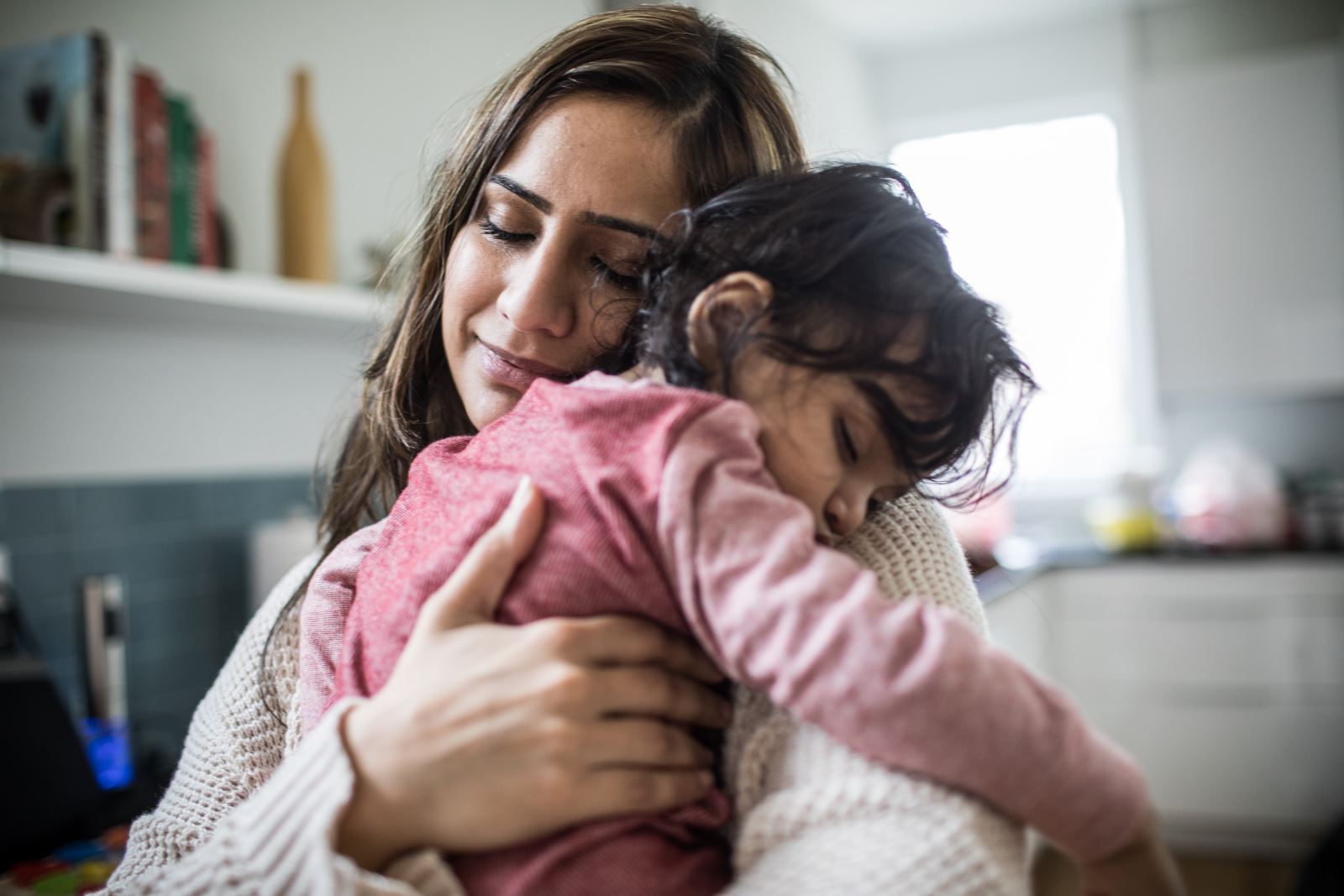
From custody battles and guardianship issues – to pending evictions and rodent infestations – patients throughout the Richmond community face legal challenges that can have serious impacts on their health and wellbeing. To help, our Medical-Legal Partnership offers free legal advice and representation for eligible patients and families.
As associate general counsel for the MLP, Allison Held leads the program and shares some background on what it is and how its support can make a critical difference.
The MLP model was developed by a pediatrician in Boston in the 1990s. He was the chief of pediatrics at Boston Medical Center which like, VCU Health, is a large safety-net hospital. He was tired of treating children with asthma and sending them home to moldy apartments, or seeing anemic toddlers and telling their parents to go out and buy more and better food when he knew they couldn't afford to. He was concerned about treating babies with lung ailments and sending them home to apartments without air conditioning.
He grew so frustrated by this that he did something that was considered pretty radical at the time – he hired his own team of three lawyers and stationed them in the pediatric clinic. He established what he called “walk-in Mondays” so the lawyers could fight the legal and administrative battles to improve children's health in ways that pills and surgery couldn't.
This sparked a movement across the country. There are now more than 400 MLPs in 48 states.
 MLPs are essentially programs that add lawyers to the health care team to address social issues that are rooted in legal problems for low income and underserved patients and families. Our lawyers become part of the health care teams in the clinics we serve. Doctors, nurses and social workers refer patients to a lawyer in the same way that they would refer them to a subspecialty like psychology or cardiology. We intervene to address social determinants of health, such as unlawful evictions, public benefit denials, employment discrimination, family law issues including domestic violence, issues with immigration status, etc.
MLPs are essentially programs that add lawyers to the health care team to address social issues that are rooted in legal problems for low income and underserved patients and families. Our lawyers become part of the health care teams in the clinics we serve. Doctors, nurses and social workers refer patients to a lawyer in the same way that they would refer them to a subspecialty like psychology or cardiology. We intervene to address social determinants of health, such as unlawful evictions, public benefit denials, employment discrimination, family law issues including domestic violence, issues with immigration status, etc.
We help children and families advocate for themselves in school and at work. We recognize that circumstances outside our clinic walls, such as a lack of food or housing or a child not getting the support they need at school, can have a profound effect on health. So, adding lawyers to our health care teams makes sense, and we see the difference we can make in our patients’ lives and in our community by providing this free, compassionate service to our patients and families.
We provide this service through community partners, including Central Virginia Legal Aid Society, CancerLINC, McGuireWoods and Dominion Energy. We also rely on many other pro bono attorneys in the community.
The legal issue we see most frequently at CHoR relates to patients and families living in substandard housing conditions that are contributing to poor health – for example, a child with asthma or a pulmonary condition that lives in an apartment with mold or a leaky roof, or that’s infested with cockroaches or bedbugs. These conditions can make asthma or other breathing problems worse. In cases like these, lawyers are able to intervene to require the landlord to comply with the law and make needed repairs. We often see in these cases that the health issues improve once we've been able to address the legal problem.
Another example is in the employment area, particularly with families undergoing cancer treatment. A patient or parent may need to take some time off from a job, work reduced hours, or sometimes we see people lose their jobs. We help advise patients on their rights, represent them in the case of a wrongful termination, and hopefully help patients and parents keep their jobs, income and benefits so that they can adhere to treatment plans and focus on getting well.
One more example and is special education, which is a relatively new and growing area for us. Education – not income, surprisingly – is the number one predictor of long-term health and life expectancy. So keeping kids in school and providing children with all the support they need to be successful in school is really important. Our providers at CHoR refer cases to us when they see kids who are having trouble in school, who are being bullied or who may need an individualized education plan in order to receive special education and any related support services. We help families communicate with teachers and school administration, understand their rights, and request and enforce special education plans. We also work with parents to help them advocate for themselves and their children in school. This has become even more important due to COVID and virtual learning, since it can be more difficult to provide these services in this new learning environment.
We do not do medical malpractice, and we only address civil legal matters. So we don't do any criminal work.
Free legal services are offered to the families of pediatric patients at the Children's Pavilion, Brook Road Campus and Virginia Treatment Center for Children, as well as adults in several clinics throughout the health system. We’re hoping to expand our services over time. Patients must also meet our income guidelines and live in Richmond or any of the surrounding counties.
We also provide free legal services through the Central Virginia Legal Aid Society out of the Health Hub at 25th Street in the East End. Any member of the community can make an appointment to meet with an attorney at that location.
The best way to access our services is to talk to your physician, nurse or social worker. They’ll make a referral to us if you meet our eligibility criteria and the legal issue is something we can address. Once we receive that referral, one of our team members will reach out to you.
We can also be reached by email at mlp@vcuhealth.org, or you can call us at (804) 517-9110.
We’re very grateful for the support of the health system for recognizing the importance of social determinants of health and the work that we do. We wouldn't exist without the support of the MCV Foundation, which provided the seed funding for our program and continues to support us in many ways. And we've also received funding from some local foundations, including the Herndon Foundation, the Virginia Sargeant Reynolds Foundation and the Virginia Law Foundation. And of course, we benefit tremendously from all of the pro bono support that we receive from many lawyers in the community who donate their services to our patients and families. So I want to thank all of our partners for enabling us to provide these important services.